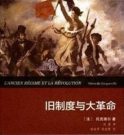American Exceptionalism: Response
We are all patriots first, philosophers second. And that is just as it should be. Still, the patriotic American must admit that his country’s constitution was not made for export, and that parliamentary countries enjoy more political freedom. That’s not to say that America is anything other than free. Still, as he surveys the shipwreck of presidential regimes in other countries, the American patriot should ask himself why America is exceptional in this respect, and whether it will continue to remain so.
It’s not as though the recent concentration of power in the Executive Branch in the Age of Obama has been seen as wholly benign. Or that one cannot imagine a still greater concentration of power 20 or 40 years hence.
I address these issues in much greater detail in The Once and Future King, a book from which this essay is taken. The book will be published by Encounter Books in Spring 2014
The book’s empirical appendix may be found at http://buckleysmix.com/rex-futurus/.
Methodological Comments
James Rogers expresses a concern about the variables in my model. “Buckley does not include a variable that controls for the policy preferences of the people in the different countries from which he draws data,” he says. That sort of thing can’t easily be done in an econometric study, however, unless one employs the broadest of variables. This I did, however, employing British, Latin and African independent variables, and discarding a Catholic variable only because it did nothing (as Carlos Boix has shown in his regressions, in Democracy and Redistribution, Cambridge U.P., 2003)). I also employed independent variables for the age of the country and the literacy level.
He also wonders about country-specific factors. I did in fact correct for country-specific effects, however, with a panel-corrected standard error model.
Roger’s final suggestion raises the problem of causality. He suggests that dictators impose a presidential regime to solidify their power, so that dictatorship causes presidential regimes rather than the other way around. That’s a sophisticated suggestion, though it lies ill in the mouth of one who professes to admire the presidential system. If he’s right, he might want to explain why people like Assad and Putin like the constitutional regime he defends. In any event, I agree with Cheibub that, on losing power, dictators seldom have much say in the matter. For the most part, constitutions are written by those who overthrow dictators, and not by dictators themselves.
The Framers
I thank John Yoo for linking me to George Mason. For his principled and intelligent defense of executive power, John is the Hamiltonian of our day. (I mean politically, of course.) John and I disagree, however, about whether Mason’s chief concern was an Imperial Congress. One can’t read his speeches at the Convention without being impressed by his prescient fear of an overly strong executive. On this, his interventions on impeachment are instructive, as was his belief that Congress (like parliament) would appoint the president. Then there was Mason’s motion (Farrand II.542), at the very end of the Convention, that the president’s authority be fettered by an executive council appointed by the states.
The Constitution that the delegates thought they were giving the country was one in which state legislatures would appoint Senators; and the House of Representatives, voting by state, would elect the president. The locus of political power would be at the state level, and the federal government would more closely resemble a parliamentary than a modern presidential government. One doesn’t understand anything about the Framers unless one realizes that what they meant by the separation of powers was something very different from what we know of it today.
The Future
The Constitution, which Rogers and Yoo prize, vests enormous discretion in a president who seeks to expand his powers. He may embark on a war to distract attention from domestic problems (watch your step, Assad!). He can send in the IRS, the EPA, OSHA and a host of regulatory agencies to bedevil his opponents. He can even suggest that his opponents are criminals.
I know what you’re saying. It could never happen here. But let’s suppose that it might. Congress might hold hearings, if one of its branches is in the hands of the other party. Impeachment is off the table, however. Ultimately, the only brake on a power-seeking president is the voting public. American exceptionalism comes down to the belief that Americans are exceptional.
James Rogers wonders if countries become dictatorial because its citizens like dictators. That’s a question which Americans might usefully ask of themselves. It’s been suggested that Americans are too educated, too wealthy and too able to move up the income ladder to succumb to the kind of populist appeal that helped elect a charismatic president in 2008 and 2012. Now, I do think America is exceptional (after all it’s both presidential and free), but it requires a certain hubris to boast about American education, when its children are compared to those of other first world countries. America is also one of the wealthiest countries in the world, but one would like to know how its citizens would handle the kind of economic malaise we’ve seen in the last few years, were it to become the new normal. Then there’s income mobility. Turns out, however, that there’s less of that here than in almost any other first world country.
Finally, there are the changes in the country’s demographics as a consequence of changes in immigration law. Before the 1965 Immigration Act, 70 percent of immigrants came from first world countries. Today, however, about 70 percent of immigrants arrive under “family preferences,” mostly from third world countries. They might have admirable cultural values and work habits and still have different beliefs about the proper role of government. Many came simply to be with their families, presumably, and brought with them whatever thoughts about government they may have had before emigrating. It wasn’t that they had read The Federalist Papers, in short. It should not be surprising, therefore, if they tended to nudge American politics further along the road to the strong presidential rule with which most had been familiar in the countries they had left.
There is a way of measuring this, by looking at the Freedom House rankings of the countries Americans leave, and doing so one finds that immigrants in the 1950s came from freer countries than immigrants did 50 years later. For the 1950s, an emigration country’s weighted Freedom House ranking was 1.58. For arrivals over 2000-09, however, that number had dropped to 3.26. The 1950s score was halfway between the U.S. and Brazil, while the score 50 years later had dropped to somewhere between 3 (Mexico and Columbia) and 4 (Pakistan and Nigeria).
So what will happen, then? Stay tuned.


